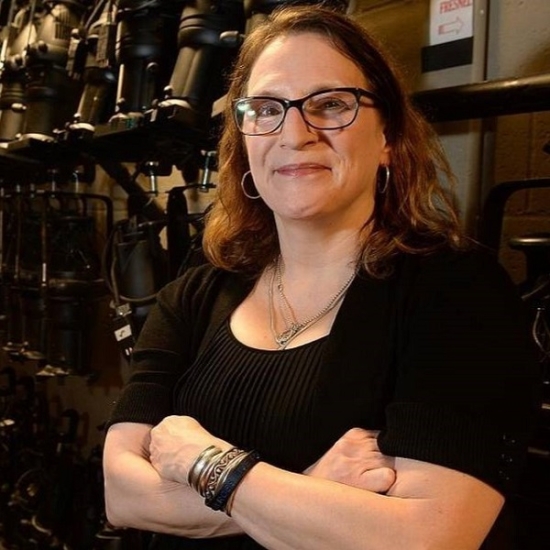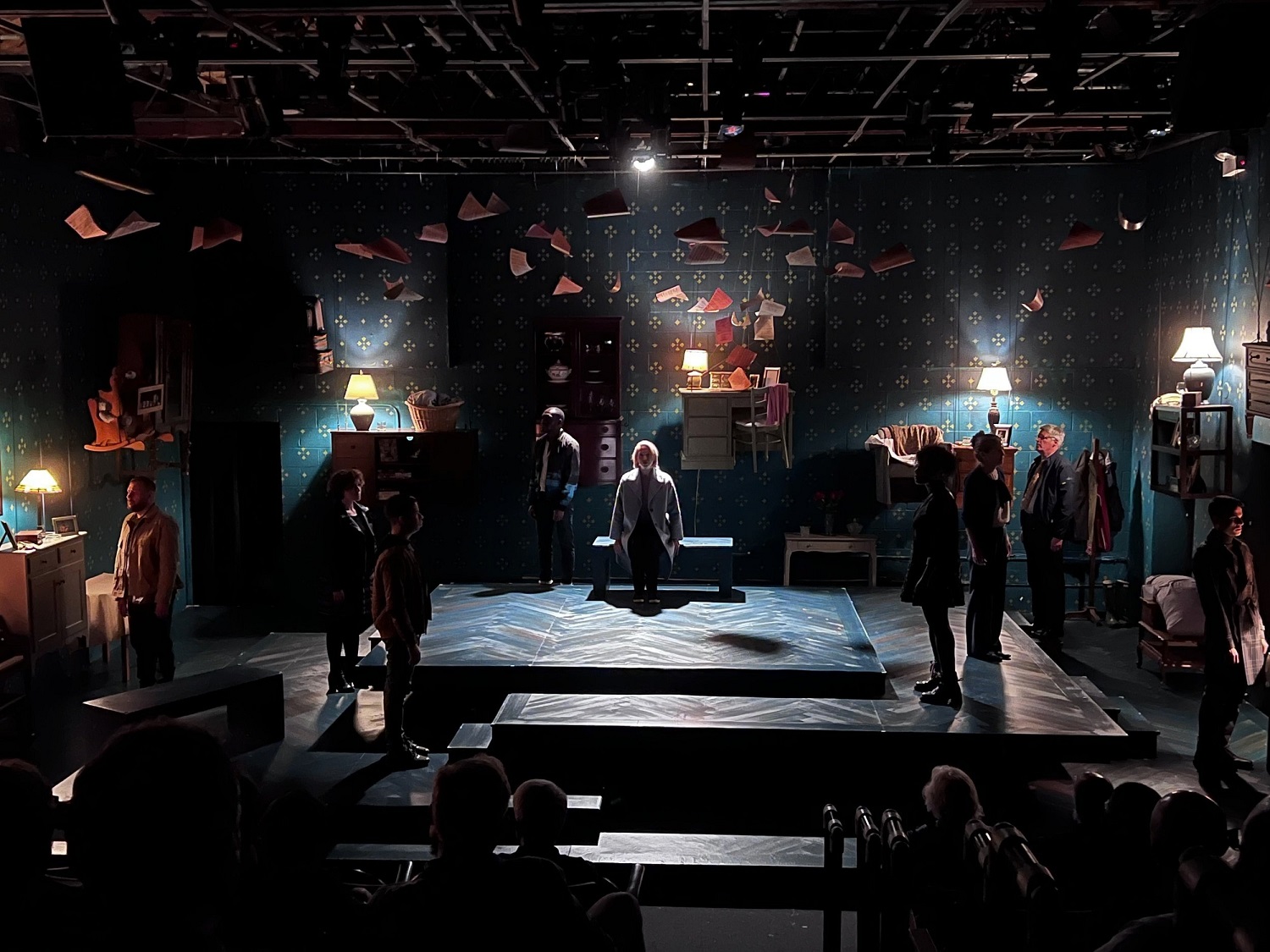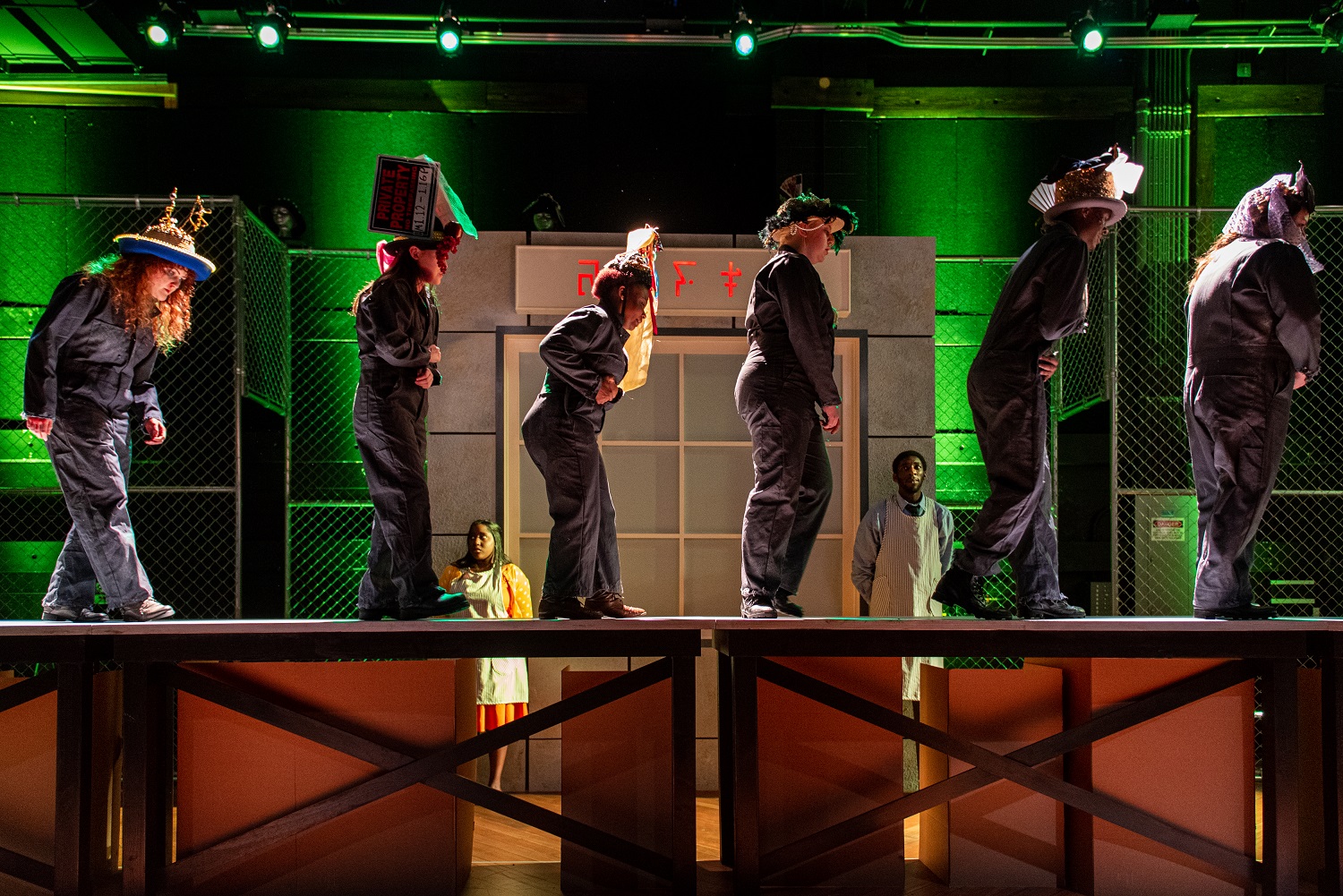
Professor Robin Witt is no stranger to the world of theatre; she’s been breathing it in since she was born. Her parents fell in love during their time at Chicago’s Goodman School of Drama, and the rest was history. While her mother would continue to perform on occasion, her father, Howard Witt, would work as an actor and director for the rest of his career, becoming a notable figure in the Chicago theatre scene. It left Witt with a lot to live up to, yet theatre wasn’t her original plan.
Growing up, Witt was focused on being a lawyer, with the dream of becoming a Supreme Court justice. But she discovered that theatre could in fact be a rigorous method of inquiry into issues of truth, justice, and purpose in the world.
“I saw my dad in Waiting for Godot when I was in high school. That production, and that play, really blew my mind open about what theatre possibly could be. That it doesn't necessarily have to have a beginning, middle and end. It's also a play that asked more questions than gave you answers. Those are the plays that I really enjoy - the difficult ones, the ones that demand something of us as readers or audience or artists. The plays that grab a hold of you and say 'come see, come be with me. Let's figure out the world together.'"
Witt herself has garnered quite a name in the world of theatre, directing moving and unique productions of difficult plays such as Laura Wade’s Breathing Corpses or Simon Stephens’s Pornography. She has worked with highly acclaimed Chicago theatre companies, such as The Goodman, Steppenwolf, and Steep Theatre, to name a few. It is evident that Witt is very specific with the shows she chooses to direct, working on stories that focus on real world issues with powerful messages behind them. The plays she works on can often portray some of the darkest sides of humanity, as they deal with the grounded and gritty tragedies that are prevalent in modern society. Witt is conscious of the horrific realities that she puts on the stage, and sees them as opportunities to create transformative pieces of art that push audiences past being entertained, to enlightened.
"I love this idea of being the author of an event – not the playwright, but an author of an event,” Witt says. “It's one where I can lead the audience into a place where they are moved, provoked, comforted. These new plays really talk about the rough texture of contemporary life. I'm drawn to characters who have no hope, but persevere nonetheless.”

The cast of the U.S. premiere of "Light Falls" by Simon Stephens. which Will directed in 2022 at Chicago's Steep Theatre. Photo by Randall Starr.
It is not easy to take on such a great feat. Many productions that Witt has directed in the past were American debuts, and the pressure was on. If the reviews weren’t favorable, that could mean the play and the playwright would struggle to be further produced in America.
Witt tries to begin working on her productions at least a year out from performances. That way she can spend ample time digging through the text and leaving no stone unturned. This allows her to enter the rehearsal space with as much knowledge on the text, the story, the themes, and the deeper message as she could possibly have.
“I spend maybe 70% of my time before the actors even come into rehearsal. It's work with the design team, it's about my research. You know you only have one shot. There are no do overs. It's like the World Series; you don't get another chance at it; you have got to keep your eye on the ball.”
She also makes sure to leave the space constantly open for discussion and conversation, so everyone can share their own thoughts and learn new perspectives.
“I'm constantly in conversation. Those conversations are: me with the play, me with the actor, me with the audience, me with the world, and me with myself. How do I feel about this work? How are the actors relating to the world that they are up against, the relationship between themselves and the environment? What is the audience seeing at this moment? What do I want them to see? What do I want them to feel? These are constant conversations."
Even by the time performances come around, the work is never done. Witt is always open for learning and change. Being able to always adapt, grow, and learn with your surroundings is one of the many things that keeps Witt at the top of her game. She has earned accolades in Chicago, such as several Joseph Jefferson Award nominations, with four wins for her work on the shows London Wall (2016) and Men Should Weep (2015).
"The inquiry is always there, I'm constantly questioning. What am I seeing? What does this mean? Is it showing what I want it to mean? And the number one question: am I prepared to create art today?”
Witt’s experience has shaped her not only into a strong director, but an excellent teacher. She learned an important lesson from her mentor: “Be the kind of director you wanted as an actor.” This is what she carries with her as a professor at UNC Charlotte, educating and directing students with the care, thought, and connection that fosters passion and excitement in her students. Her classrooms operate similarly to her rehearsal spaces, with constant open conversations, diving deeper into stories than their surface level, and supporting students in reaching their own discoveries and furthering their own journeys into theatre.

The UNC Charlotte Department of Theatre 2020 production of Caryl Churchill’s "Far Away," directed by Robin Witt.
"Seeing my students have that little 'ah-ha' moment, and articulate something for the first time – that takes everyone's breath away for a moment.” Witt says, “Those sorts of moments with my students are the things that I treasure. It's always a reminder of why I do it, to see them experience the art form in a way that is deeply meaningful to them.”
By Rayden Leeder